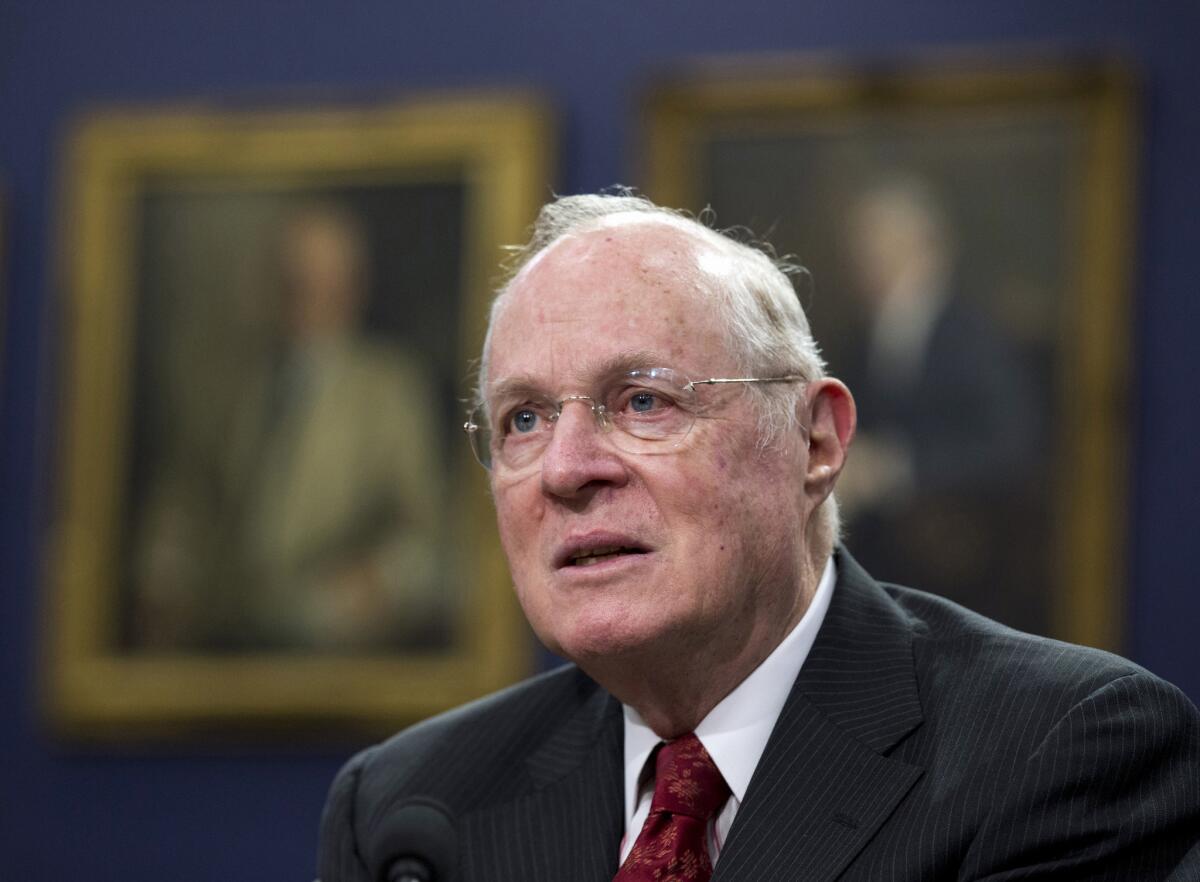Opinion: Was Justice Kennedy playing ‘devil’s advocate’ on gay marriage?

Supreme Court Justice Anthony M. Kennedy, the likely swing vote on same-sex marriage, testifies on Capitol Hill in March.
- Share via
During this morning’s Supreme Court arguments on same-sex marriage, my Twitter feed reflected anxiety that Justice Anthony M. Kennedy might not be a sure vote for marriage equality after all.
One source of the fretting was this comment by the perennial swing justice: “This definition [of marriage] has been with us for millennia, and it’s very difficult for the court to say, oh, well, we know better.”
Later, however, Kennedy -- the author of three major gay rights decisions -- cheered same-sex marriage supporters when he returned to a favorite theme: the idea that laws shouldn’t offend the dignity of gays and lesbians.
In a colloquy with the lawyer representing the state of Michigan, Kennedy said that the “whole purpose” of marriage was that it “bestows dignity” on a couple and that same-sex couples want “the same ennoblement.”
At the end of the argument, commentators pondered whether Kennedy was still a safe vote for striking down bans on same-sex marriage. Some would say that such speculation is out of line. As a former editor used to warn me when I was covering the court: “Be careful. They might have been just playing devil’s advocate.”
Sometimes justices do ask questions unsympathetic to the side they eventually decide to support or role-play to demonstrate their open-mindedness. But just as often justices think aloud -- Justice Stephen Breyer is famous for telling lawyers what troubles him -- and offer what experienced reporters see as a reasonably reliable guides to how they will vote.
The question for the reporter becomes: Should I pretend that I have no inkling of how the case is likely to come out? Or do I owe it to the reader to report (if I believe it) that a justice leans a certain way or that the court is “sharply divided.”
I favor the latter approach, even if it creates a risk that a justice or the entire court will upset expectations. Sometimes, however, a reporter’s best judgment is that particular justice is genuinely conflicted or at least hasn’t shown his or her hand clearly enough to justify a prediction.
That was my takeaway from today’s arguments, and I’m not alone. My colleague David Savage, who covers the court, reported that Kennedy “did not tip his hand.” But sometimes justices do. Think of Justice Antonin Scalia’s infamous “broccoli” comment during arguments about the Affordable Care Act. Or Justice Samuel A. Alito Jr.’s comments today analogizing same-sex marriage to a ménage a quatre.
On those occasions, reporters shouldn’t be shy about telling their readers which way the judicial winds are blowing.
Follow Michael McGough on Twitter @MichaelMcGough3
More to Read
A cure for the common opinion
Get thought-provoking perspectives with our weekly newsletter.
You may occasionally receive promotional content from the Los Angeles Times.










